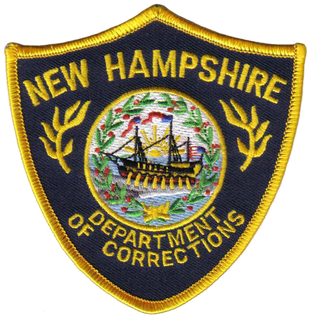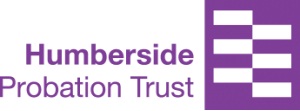Related Research Articles

Electronic tagging is a form of surveillance that uses an electronic device affixed to a person.
Probation in criminal law is a period of supervision over an offender, ordered by the court instead of serving time in prison.

Her Majesty's Prison Service (HMPS) is a part of Her Majesty's Prison and Probation Service, which is the part of Her Majesty's Government charged with managing most of the prisons within England and Wales.

The National Probation Service for England and Wales is a statutory criminal justice service, mainly responsible for the supervision of offenders in the community and the provision of reports to the criminal courts to assist them in their sentencing duties. It was established in its current form by the Criminal Justice and Court Services Act in April 2001, but has existed since 1907 as a set of area-based services interacting at arm's length with central government.
In the United Kingdom, the Violent and Sex Offender Register (ViSOR) is a database of records of those required to register with the police under the Sexual Offences Act 2003, those jailed for more than 12 months for violent offences, and those thought to be at risk of offending. In response to a Freedom of Information request in 2009, for example, Greater Manchester Police reported that of 16 people in their area placed on ViSOR since 2007 on their initiative and not as a result of a relevant conviction, four (25%) had clean criminal records.

Her Majesty's Prison and Probation Service is an executive agency of the Ministry of Justice (MOJ) responsible for the correctional services in England and Wales. It was created in 2004 as the National Offender Management Service (NOMS) by combining parts of both of the headquarters of the National Probation Service and Her Majesty's Prison Service with some existing Home Office functions. In 2017, some of the agency's functions transferred to the Ministry of Justice and it received its current name.
Probation and Parole Officers are officials appointed to investigate, report on, and supervise the conduct of convicted offenders on probation and/or those released from incarceration to community supervision such as parole. Most probation and parole officers are employed by the government of the jurisdiction in which they operate, although some are employed by private companies that provide contracted services to the government.
In the jurisdiction of England and Wales, a Multi-Agency Public Protection Arrangement (MAPPA) is an arrangement, set up in 2001, for the "responsible authorities" tasked with the management of registered sex offenders, violent and other types of sexual offenders, and offenders who pose a serious risk of harm to the public. The "responsible authorities" of the MAPPA include the National Probation Service, HM Prison Service and England and Wales Police Forces. MAPPA is coordinated and supported nationally by the Public Protection Unit within the National Offender Management Service. MAPPA was introduced by the Criminal Justice and Court Services Act 2000 and was strengthened under the Criminal Justice Act 2003.

The Tennessee Department of Correction (TDOC) is a Cabinet-level agency within the Tennessee state government responsible for the oversight of more than 20,000 convicted offenders in Tennessee's fourteen prisons, three of which are privately managed by the Corrections Corporation of America. The department is headed by the Tennessee Commissioner of Correction, who is currently Tony Parker. TDOC facilities' medical and mental health services are provided by Corizon. Juvenile offenders not sentenced as adults are supervised by the independent Tennessee Department of Children's Services, while inmates granted parole or sentenced to probation are overseen by the Department of Correction (TDOC)/Department of Parole. The agency is fully accredited by the American Correctional Association. The department has its headquarters on the sixth floor of the Rachel Jackson Building in Nashville.

The New Hampshire Department of Corrections is an executive agency of the U.S. state of New Hampshire; charged with overseeing the state correctional facilities, supervising probation and parolees, and serving in an advisory capacity in the prevention of crime and delinquency. As of June 30, 2013, the Department had an inmate population of 2,791, 15,267 on probation or parole, and 893 total employees, 470 as corrections officers and 64 as probation/parole officers. The agency has its headquarters in Concord.
The Drug Interventions Programme is a key part of the United Kingdom's strategy for tackling drug abuse. It aims to engage drug-misusing offenders involved in the Criminal Justice system in formal addiction treatment and other support, thereby reducing drug-related harm and reducing offending behaviour. Introduced in 2003, it formed a part of both of New Labour's '10 year' drug strategies. In their 2010 Drug Strategy, the Conservative / Liberal Democrat coalition state their continued intention to support DIP.

The Utah Department of Corrections (UDC) is a government agency dedicated to the management and supervision of convicted felons in the U.S. state of Utah. It is currently led by the Executive Director Mike Haddon. It has its headquarters in the Utah Department of Corrections Administration Building in Draper.

The London Community Rehabilitation Company was launched on 1 June 2014. Formerly part of the London Probation Trust, is a law enforcement agency that works alongside the National Probation Service (NPS).

The Department of Public Safety and Corrections (DPS&C) is a state agency of Louisiana, headquartered in Baton Rouge. The agency comprises two major areas: Public Safety Services and Corrections Services. The Secretary, who is appointed by the Governor, serves as the department's chief executive officer. The Corrections Services Deputy Secretary, Undersecretary, and Assistant Secretaries for the Office of Adult Services and the Office of Youth Development report directly to the Secretary. Headquarters Administration consists of centralized Divisions that support the management and operations of the adult and juvenile institutions, adult and juvenile probation and parole district offices, and all other services provided by the department.
Private probation is the contracting of probation, including rehabilitative services and supervision, to private agencies. These include non-profit organizations and for-profit programs. The Salvation Army's misdemeanor probation services initiated in 1975, condoned by the state of Florida, is considered to be among the first private probation services. The private probation industry grew in 1992, when "local and county courts began outsourcing misdemeanor probation cases to private companies to alleviate pressure on overburdened state probation officers."

Humberside Probation Trust was a criminal justice agency which protects the public by ensuring offenders are punished and rehabilitated. Humberside was one of 35 probation trusts within England and Wales that were part of the National Offender Management Service (NOMS) and a department of the Ministry of Justice.

Adult Probation and Parole (AP&P) is a division of the Utah Department of Corrections (UDC) which is a government agency dedicated to the management and supervision of convicted probationers and parolees in the State of Utah. It is currently led by the Division Director Dan Blanchard and is headquartered in the Utah Department of Corrections Administration Building in Draper.
Sarah Payne is the head of the National Offender Management Service in Wales, previously having worked as the chief executive of the Wales Probation Trust. Prior to her probation work, she was chief executive of the charity YWCA England and Wales. She was an area manager and a governor in HM Prison Service, having entered the service directly from university on a graduate scheme.
Community Rehabilitation Company (CRC) is the term given to a private-sector supplier of Probation and Prison-based rehabilitative services for offenders in England and Wales. A number of CRCs were established in 2015 as part of the Ministry of Justice's (MoJ) Transforming Rehabilitation (TR) strategy for the reform of offender rehabilitation.
Transforming Rehabilitation (TR) was the name given to a white paper issued by the UK Ministry of Justice in May 2013, and to a programme of work from 2013 to 2016 to enact the strategy outlined in the paper. TR is concerned with the supervision and rehabilitation of offenders in England and Wales.